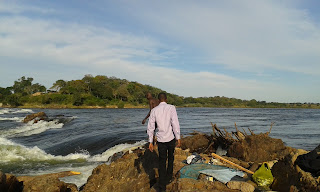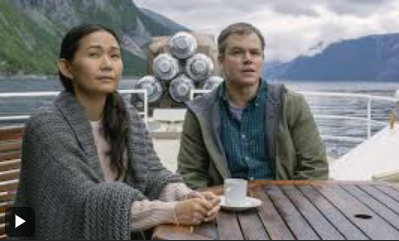Agogo Mailes
I don’t know whether this was a
fitting goodbye to my grandmother; that is me arriving when she had already
been buried and staring thoughtfully at the mound of fresh dark brown earth,
underneath which her lifeless 90 year old body had no doubt began its decomposition
process. Right there in the dark brown earth of Kamphilu lay my connection to
over 70 years of my maternal history.
Not that I did not try to be
there in time. My attempts had seen me jump on some coach at Intercity bus
terminus, with the rather chubby conductor assuring me that I would be in
Lundazi before end of day. What followed were hours of endless revving of the bus
while passengers complained loudly to no one in particular. My attempts at
reading “To Kill a Mocking Bird” for the fiftieth time only making me more
impatient. It would take another 4 hours before we were bounding on the great
east road on our way to Lundazi and even then I literary had bigger problems to
worry about.
These bigger problems were in the
form of a man-mountain, who decided to leave his sit and squeeze into the one
right next to mine.
Any momentary relief I should
have felt at finally starting this journey quickly dissipated into frustration
at my lack of comfort, as this very fat man whose every breath sounded like a
broken radiator pushed me to the utter periphery of the two seats, while
incessantly wriggling his ample bottom in search for more pockets of space. He
kept up this annoying habit for a good part of five hours. He introduced
himself by literally depositing his 200 kgs on my right thigh, my rather loud
protestations only made him snort like a pig before clumsily shifting in his
seat to try and create space for me, rather unsuccessfully.
He did not speak to me directly,
but kept up a rather raucous conversation with another passenger about
politics. Every now and then, he would reach into his pocket, pull out a handkerchief
and give his nose a mighty blow, before breaking off into another lengthy rant
against the government without waiting for his friend to finish. I cannot even
begin to describe my untold suffering each time he foraged for his handkerchief
or phone, every twist of his huge trunk would result in me being pushed further
into the bus’ body with my bones would be jammed together like some python was preparing
to swallow me.
That would be my torment till
Petauke when my “thorn in the backside” reached his destination and announced
his departure by again clumsily rubbing his buttocks in my face and nearly
breaking my glasses as he made his way out of his seat. His replacement was a
very small elderly lady who smelled of dry fish. She didn’t say a word to me
till she disembarked.
Once in Kamphilu, I was quickly
whisked to the graveyard, where a few hours ago, my grandmother had been buried.
Back from the graveyard, I was arraigned before the elders. One of them who I
later came to know as Shepard, said something very rapidly in Tumbuka which
roughly translated to “this is one who went to be educated in the land of the
white man”.
They all nodded with grave tired faces.
They never looked me in the eye, but would steal glances at me; their eyes
dull, only momentarily flicking into life. They had seen it all. From the time
my grandfather, then a retired teacher decided to settle on that land, 30
kilometres from Lundazi, they had been there. They had shared his vision, a
small fast talking man who was the local leader of the United National
Independence Party, they had hopes that he would represent their interests in
parliament one day, except fate had other plans.
The man they fondly called “Dontiwale”,
a vernacularisation of his favourite phrase “Don’t Worry”, suffered a mental
breakdown. He died a raving lonely man somewhere in Chingola, leaving my grandmother
to tend their land and found the village now called “Dontiwale”. It was she
they had just laid to rest.
My head was pounding my eyes hurting due to
lack of sleep. One by one each one asked
me, “do you know me?” I didn’t.
So what did we sacrifice on the
altar of flashing lights, second-hand cars, well rehearsed American accents and
the watches to match. The sprawling shopping malls, plots in various stages of
completion, designer clothes and state of the art smart phones. What did we pay
for our huge offices, the company paid for tea and a sporadic international
trip once in while, the selfies and hashtags? What did we sacrifice for a
lifetime supply of bundles, social media, music, movies and pizza?
Well for starters there was Uncle
Zimba, brandishing a toothless grin and eyeing me thoughtfully. He had been a
member of the Lumpa church under Lenshina and had lived through the
government’s fractious relationship with the Lumpa church. He got my hand and
led me to a section of uncleared bush west of the homestead. “Right there, that
is where the church was housed”, he pointed ruefully.
He remembered the day like it was
yesterday when government forces came to break up the Lumpa church cells. He
had never seen a dead body before but on that day saw the very visitation of
death. He was only a boy but that trauma has stayed with him for life.
Or you could look at Shepard, who
prefers to be called "Shapespeare". His feet look like they have never seen the
inside of a shoe, yet he will tell you that he was a champion footballer in his
days and a runner too. He represented his school and province and was courted
by a host of top clubs, until he broke his leg during one of the games. Now
like the others, he goes through life with a certain dull light in his eyes. An
acceptance or resignation of sorts. In the evening he hunts for home-made
liquor, clutching a jacket with more holes in it than a golf course. He will
stagger home to his bed after midnight and repeat the process the following
day.
“I am turning fifty this year” he
says without being asked. “after that I will stop counting the years. Then I can die. That is the only way to get
you town folk back to the village, not so?”
Or my grandmother Mailes buried a
few hours before I arrived in Kamphilu. There is still debate as to what her
real name was as there is a very credible story that she was named Wailes in
commemoration of the wireless radio that had just become mainstream then. She
was married off at 15. It is said her husband desperately wanted a son, but she
ended up giving him seven females, the first-born who came to be my mother. The
last time I visited her in the village was in 2013. Even then I was on my way
to Chama for official duty. I asked our driver to stop by the little green
Mosque which is just next to the homestead. It was a ten minutes visit…
I wish I had stayed longer.


You are such a great story teller my friend... awesome. Your tales always come to life and invoke emotion in the reader, truly leaving footprints in the dust.
ReplyDeleteI am humbled my friend. Thanks for your support.
Delete